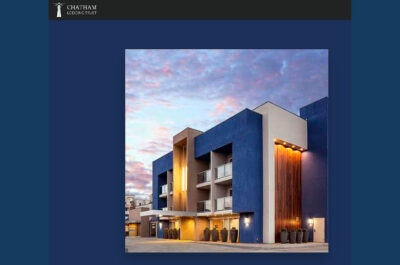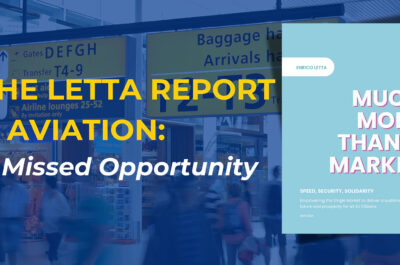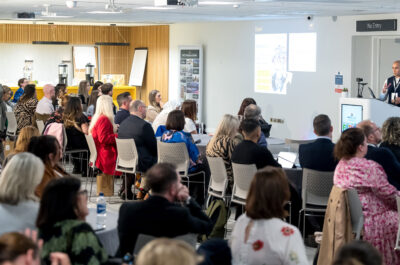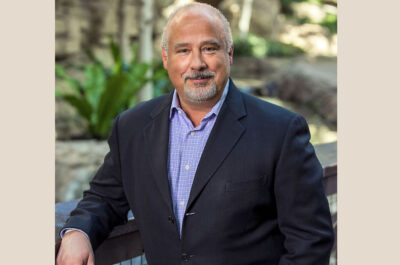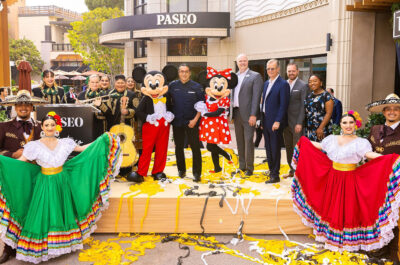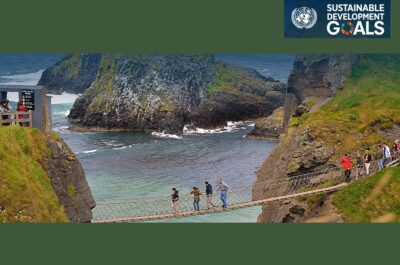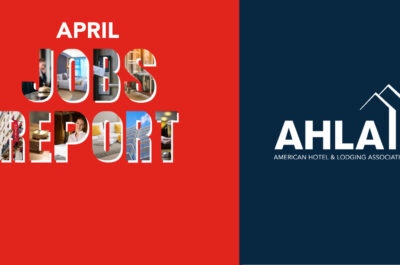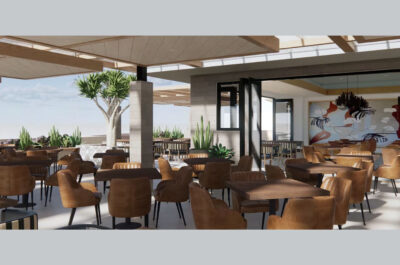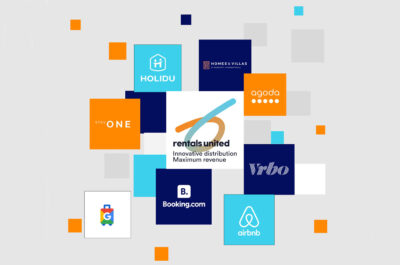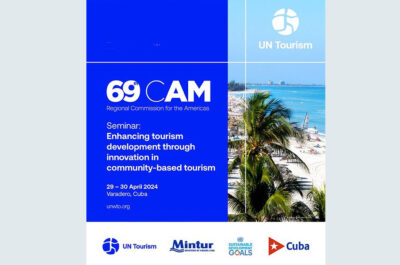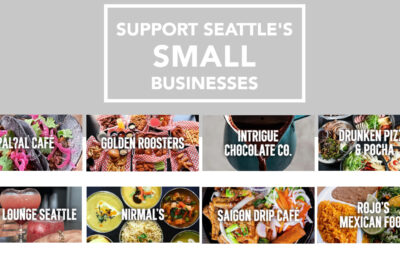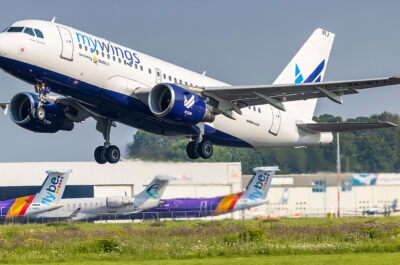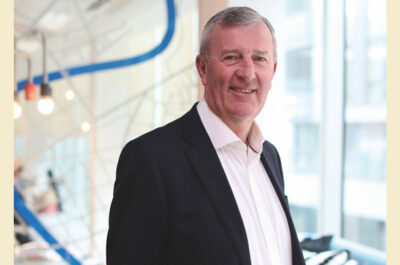…
 IN-DEPTH: Interview with Panagiotis Arkoumaneas, CEO of Athens Tourism and Economic Development Company
IN-DEPTH: Interview with Panagiotis Arkoumaneas, CEO of Athens Tourism and Economic Development Company
A section of the industry has emphasised that the recent stats generated from Facebook and Google indicate that a shift in online behaviour from search to share has occurred.
There also been a debate about whether it is prudent to compare social networking traffic and search engine traffic as the two are said to be qualitatively different.
But there is no denying that various travel and tourism companies including the tourist boards and DMOs have been relying on social media platforms for their communication strategy. For instance, The Athens Tourism and Economic Development Company (ATEDCo), which was created in order to present Athens as a dynamic European metropolis and a competitive tourism and convention destination, believes that one has to be proactive and agile in order to be a part of conversations taking place on the web.
In order to know more, EyeforTravel’s Ritesh Gupta recently spoke to Panagiotis Arkoumaneas, CEO of Athens Tourism and Economic Development Company.
Excerpts:
Ritesh Gupta: With reference to recent research showing that in May, for the first month ever, social networks received more visits than search engines in the UK, it is being pointed out that comparing social networking traffic and search engine traffic is flawed. How do you think consumers visiting social networks are qualitatively different?
Panagiotis Arkoumaneas: People on a Search engine are usually actively "searching" for something, while people on social networks might be just exchanging info with their connections. However, as social networks are becoming more predominant, they are also adapting and offering more to users by enabling search and advertising facilities. Take Facebook, for example. Pages becoming more searchable and Bing results on the same search page might mean you won’t have to leave Facebook at all in the future.
R. G.: It is being pointed out that search engine usage is the proactive and decisive pursuit of information and content that will often lead to a consumer transaction. A search engine visit is quite likely to result in a monetary transaction, a Facebook visit may just be someone looking at a post on their wall and a million miles away from a conversion. A search engine visit has a distinct commercial or informational purpose, which isn’t necessarily true of the average Facebook visit yet. What’s your take on this?
P. A.: To counter balance that it needs to be said that while a user might end up on your website from a search engine, and then never visit it again, on Facebook users are very likely to connect with your page (the magic Like button). Once they’re connected they will listen to everything you will share from there. They might not need your service/product right now, but you’ll be in the back of their mind when they need it. In other words, it’s great branding. It is also to be considered that nowadays you can add almost any web element in your Facebook page, so you can easily sell from there.
R. G.: Which is the best way to go about building up presence on Facebook? How should one go about designing and content on Facebook, while creating a fan page?
P. A.: Facebook is not much different from a face to face interaction. So do what you would do in person. Be interesting, funny, and don’t talk only about yourself. If you own a restaurant page on Facebook don’t just push your 10 percent discount offer again and again, but share interesting recipes. If you’re a travel destination, offer alternate tips about your destination with general travel tips. You will appeal to a larger audience.
A great design (nice tabs, logos, etc) can help, but content is king. And the golden rule: listen. Ask questions to your connections, get them to interact. Like in a face to face interaction, it is a dialogue, not a monologue.
R. G.: Hotels have been introducing room booking widgets to their Facebook sites. It is being said that it logical that conversations on a hotel’s Facebook wall should be supported by a user-friendly booking device. How do you think travel companies are now trying to capitalise on e-commerce opportunities?
P. A.: Travel companies are realising that when it comes to a purchasing decision people do trust peer recommendations. And this is particularly true in your example of booking a hotel room. As a consequence, we are seeing a shift (that started with the Tripadvisor phenomenon) from being able to purchase on a company website to being able to purchase where people are sharing opinions about a certain product or service. And we think this is just the beginning.
R. G.: Microblogging site Twitter has banned other companies from inserting ads into users’ streams of short messages. This year it also introduced the first phase of its Promoted Tweets platform with a handful of advertising partners. How do you assess such move?
P. A.: In order to stay competitive Twitter had to find some way to monetise. The move came a long time after the Twitter phenomenon exploded, but is a non-intrusive and well thought way to show ads. They clearly thought it through for a long time.
R. G.: According to Twitter, Promoted Tweets “are ordinary Tweets that businesses and organisations want to highlight to a wider group of users”. Users will see Tweets promoted by Twitter’s partner advertisers called out at the top of some Twitter.com search results pages. Promoted Tweets will be clearly labelled as “promoted” when an advertiser is paying, but in every other respect they will first exist as regular Tweets and will be organically sent to the timelines of those who follow a brand. What do you make of such efforts?
P. A.: It is pretty much like the AdWords model. Instead of promoted search results you have promoted tweets. And like AdWords ads, as long as they are clearly labelled, not taking too much space from the real content, and most importantly related to what the user is reading nobody will mind. They could even offer extra information.
R. G.: How do you assess the utility of Twitter as a CRM tool, for promotions and as a traffic driver?
P. A.: The beauty of Twitter is that all content is public, so it allows you to be proactive. If somebody is talking about your brand you can join that conversation. For example if someone is tweeting: "Going to Athens next weekend. Anyone has any recommendation?" We (@CityofAthens) can find it and reply to it. Regarding Twitter for promotions and as a traffic driver, the key is to have a good number of followers but most importantly to be engaged in conversations with them, as what you share will then be retweeted and will reach an even higher number of people.
R. G.: What does the future hold for Facebook and Twitter, and how can one prepare their travel business?
P. A.: One thing is certain about Facebook, Twitter, or whatever new social media channel will appear in future (joining them or even replacing them): these channels will be accessed more and more from mobile browsers. And that is great news for the travel business as every piece of information will be accessed locally (think of Foursquare or Gowalla for example). As a consequence the travel business will have to adapt by becoming more open, more social and more local.
Online Marketing and Social Media Strategies for Travel Summit Europe 2010
Panagiotis Arkoumaneas is scheduled to speak at the forthcoming two-day Online Marketing and Social Media Strategies for Travel Summit Europe 2010 (5-6, October) to be held in Prague.
For more information, click here
Or contact:
Gina Baillie
VP Global Marketing & Events
EyeforTravel
London, UK: +44 (0)207 375 7197
gina@eyefortravel.com





